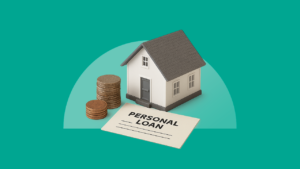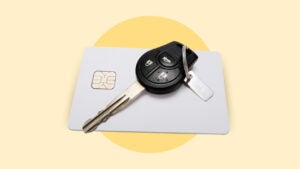Can you use a personal loan to buy a car?

Key takeaways
- You can use a personal loan to finance a used car if conventional financing isn’t available or if you can’t qualify for an auto loan.
- Rates can be higher and repayment terms shorter, compared to traditional auto loans.
- You may be able to avoid repossession of your vehicle if you default on a personal loan.
Unless you can pay cash, you are probably like most buyers and will need to finance a vehicle purchase, but an auto loan isn’t your only option. Personal loans can be used for almost any purpose — even buying a car — and it might make more sense than borrowing an auto loan. That said, there are a few drawbacks to consider before choosing this option.
4 reasons to get a personal loan to buy a car
There are certain scenarios in which a personal loan may be a good option to pay for a car: it may be one of your only options or forgoing a traditional auto loan may save you money. Examine your finances, crunch the numbers and see if it makes sense for you.
Some examples of when it could be a better option include the following:
1. Conventional financing is not available
If you are considering buying an older car, it may not always be possible to secure a conventional loan with competitive auto loan rates. Some lenders may refuse to finance a vehicle older than 10 years. You may also find that lenders require vehicles to have fewer than 100,000 miles.
2. Your credit is too low for an auto loan
If you have less-than-ideal credit, getting a car loan may be difficult, though some lenders offer bad credit personal loans. Before submitting a formal application, consider prequalifying for a loan with at least three lenders to compare rates without hurting your credit.
3. Your other option would be a subprime lender
A second-chance auto loan, or subprime loan, is another option but often comes with higher monthly payments. Additionally, borrowers with subprime credit scores typically pay the highest interest rates.
According to data from Experian, the average interest rate on a subprime car loan during the third quarter of 2025 was 19.00% for used cars and 13.34% for new cars. Personal loan rates can be as high as 36% for subprime borrowers, but if the only auto lender that will approve your loan is less-than-reputable, a personal loan could be a viable alternative.
4. You qualify for a competitive personal loan rate
While auto loans typically have lower rates, excellent-credit loans start as low as 6.5%. However, if your good credit and strong financial portfolio qualify you for a low-interest personal loan, you may also qualify for special auto loan deals. This could mean a significant rebate or even 0% financing on your auto loan. Explore both personal loans and manufacturer deals to determine the better option for your finances.
Using personal loans to buy a car: Pros and cons
Like all financial products, personal loans have advantages and drawbacks. Before you use a personal loan to buy a car, compare your options and make sure the pros outweigh the cons.
Pros
- Some lenders offer next-day or even same-day funding, which can be useful if you’re buying from a private seller and need to act quickly.
- Personal loans do not require a down payment, while many auto loans do.
- Unlike auto loans, personal loans are not secured by collateral — in this case, your car. That means you may not lose it if you default on the loan.
Cons
- Personal loan rates can be as high as 36 percent, although there are cases of bad credit auto loan rates being just as high — or higher, depending on your state.
- Personal loan lenders tend to limit loan amounts that may not be high enough for your car purchase.
- There can be additional costs with a personal loan, like an origination fee and prepayment penalty.
Personal loans vs. auto loans for buying a car
Auto loans and personal loans are similar in that they are both installment loans, meaning they are paid over a set term, usually between two and seven years for both types of loans. They both come with a fixed interest rate, and your income and credit history will be key to getting approved. There are also some key differences.
While an auto loan is used specifically to finance a vehicle, there are many other reasons to use a personal loan, including consolidating debt and financing a home improvement project. Additionally, auto loans are secured loans that use your vehicle as collateral, which the lender can repossess if you default on the loan, but a personal loan is not. Since there is nothing backing a personal loan, interest rates are often higher than auto loan rates.
| Personal loan | Auto loan |
|---|---|
| Frequently unsecured | Secured by the vehicle |
| Can be used for multiple purposes | Restricted to vehicle financing |
| Higher interest rates and shorter loan terms | Lower interest rates and extended loan terms |
Bottom line
When buying a used car, a personal loan can sometimes be more favorable than a traditional auto loan. This is especially true if you can’t qualify for conventional financing or want to own your vehicle outright right away.
However, because these loans are often unsecured, they may come with higher interest rates and shorter repayment terms than many auto loans. Before deciding, consider using a loan calculator to crunch the numbers and determine which option makes the most sense financially.
Why we ask for feedback Your feedback helps us improve our content and services. It takes less than a minute to complete.
Your responses are anonymous and will only be used for improving our website.
You may also like

How to get a $35,000 personal loan

How to prequalify for a personal loan, and why it matters

Can I get a personal loan to buy a house?



